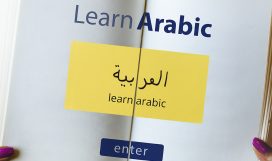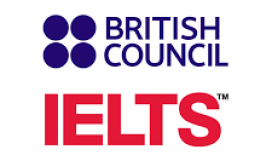دورة اللغة التركية لغير الناطقين بها

A full Turkish language course to learn speaking and writing Turkish language for non-natives. At this course you will learn the basics of the language, you will get to know the Turkish alphabet and how to spell each letter, as well as learning greetings and formal introduction and some important vocabulary. Also, you will get to know the basic grammar rules and the colors, numbers, animals, date and time. You will know how to form simple sentences and the essentials of Turkish language.
Course outcome:
1- Learn greetings (hello – good morning – good evening – good bye – how are you – have a good day, etc)
2- Know colors (red – green – yellow – orange – purple – blue – brown – black – white, etc)
3- Know basic grammar rules in Turkish language
4- How to introduce yourself in Turkish language.
5- Form full sentences in Turkish language and interact easily with natives.
6- Know how to spell each letter of the Turkish alphabet.
Why do you need this course:
1- You may be surprised to hear that learning Turkish isn’t difficult. Since the Turkish alphabet has Latin letters, English native speakers can easily read Turkish. Turkish pronunciation isn’t difficult to master either. You can speak fluently without having to worry about your accent.
2-Turkey lies between Europe and Asia. It’s the country that connects the Western world to the Middle East. As it has features from both parts of the world, Turkey is a very important country geo-politically. If you’re interested in international relations and diplomacy, learning Turkish could really benefit you. Since 1995, Turkey and the European Union have a Customs Union. With Turkey’s international importance growing, there are definitely opportunities to advance your career.
3- The many cognitive benefits of learning languages are undeniable. People who speak more than one language have improved memory, problem-solving and critical-thinking skills, enhanced concentration, ability to multitask, and better listening skills. They switch between competing tasks and monitor changes in their environment more easily than monolinguals, as well as display signs of greater creativity and flexibility.
4- Language is the most direct connection to other cultures. Being able to communicate in another language exposes us to and fosters an appreciation for the traditions, religions, arts, and history of the people associated with that language.
5-Traveling as a speaker of the local language can revolutionize a trip abroad. While monolingual travelers are capable of visiting the same places, travelers who know more than one language are more easily able to navigate outside the tourist bubble and to connect and interact with the place and its people in a way that is often inaccessible to those without the language. Learning a second language also opens additional doors to opportunities for studying or working abroad.
6- In a world of more than 6,000 spoken languages, we sometimes require translation, but speaking at least one additional language empowers us to access information that would otherwise be off-limits.
7-Learn Turkish to Speak to a Lot of People. Turkish is the official language of Turkey, but a lot more countries speak it. Millions of Turkish speakers live in Germany, Cyprus, and Greece. In total, there are around 80 million Turkish speakers worldwide. If you can speak Turkish fluently, you can talk to all of these people. Communicating and connecting to Turkish locals won’t be a problem. And with 80 million Turkish speakers, there are bound to be opportunities to improve your life.
8- Language skills can be a significant competitive advantage that sets you apart from your monolingual peers. They are among the top eight skills required of all occupations—no matter your sector or skill level—and the demand for bilingual professionals is rising exponentially.
9- One of the most rewarding aspects of the human experience is our ability to connect with others. Being able to communicate with someone in his or her language is an incredible gift. Bilinguals have the unique opportunity to communicate with a wider range of people in their personal and professional lives. Knowing the language makes you a local no matter where you are.
10-Turkish culture is very unique. Through its rich and exciting history, Turkey has a lot of traditions and customs. And the only way to truly understand them is to speak Turkish. Turkish food holds a special place in the heart of the culture. We’re not just talking about Turkish delights here. Tomato and aubergine dishes, bread, grilled meats, anything a hungry person could want. And then the tea and coffee. Turkish cuisine is truly wonderful. And what better way to order it than to ask your server in Turkish? They’ll surely appreciate hearing their language from a customer.





